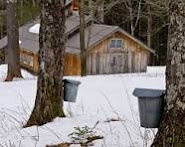The
good news is that many of Turkey’s leading companies are making major
investments and creating thousands of jobs. The bad news is that a great many
of these investments are outside Turkey. At a time when Turkey desperately
needs major industrial investment and increased employment these companies have
found greener pastures elsewhere.
They represent a wide cross section
of Turkey’s large industrial base – textiles, glass, white goods, automotive,
pipe manufacturing, and many others. This export of investments and jobs is explained
in part by the simple fact that many of these companies are no longer just good
local operators. They have outgrown the confines of Turkey as their skilled
managers have grabbed growth opportunities spanning the globe. Turkish
construction companies have long been active outside Turkey but now they have
been joined by mainstream, large job-creating industries.
The additional bad news for Turkey
is that a number of global companies have taken a look at investment
opportunities in Turkey and have decided to go elsewhere. This list includes
Tesla, Volkswagen, and LG. There can be many reasons ranging from size of the
market, labour quality and costs, distribution, etc. for deciding not to
invest somewhere. I don’t know the specific reasons for these companies
deciding to pass on Turkey, but in my experience of cross-border investments
two of the major factors are rule of law and freedom from arbitrary regulations
limiting movement of capital. In both cases Turkey comes up short. Exporters,
for example, are required to sell their hard-earned foreign exchange revenues
to the cash-strapped Central Bank.
According to a report in the German news
service Deutsche Welle, Egypt has been one of the major beneficiaries of
the expansion of Turkish companies. One factor is, of course, the lower wage
costs in Egypt. In Turkey the average monthly labour costs – for industries in
the regulated part of the economy – are about $500 per worker. Monthly labour
costs in Egypt are just $150. In addition, fuel costs are much lower in Egypt. This
might explain in large part why Turkish companies like Arçelik, Şișecam, Temsa
and Yıldız Holding have moved production there.
 |
| Beko has become a leading European brand |
Temsa makes buses and vans in Egypt
and exports them to the rest of the world. Yeșim Textil operates factories in
Cairo, Alexandria and Ismailia and supplies goods to world-famous sports
brands. The giant white goods company Arçelik, known in Europe for its brands
like Grundig and Beko recently invested $100 million in a new Egyptian factory.
Many other companies like Iskefe Holding, LC Waikiki and the Eroǧlu Group have
also announced additional investments in Egypt.
At last count about 70,000 people in
Egypt already work for Turkish companies. About one-third of all textiles and
clothes in Egypt are now produced in Turkish-owned factories. By the end of
2023 investments by Turkish companies in Egypt could total $3 billion.
This wave of outward investment by
Turkish companies is by no means limited to low-wage countries like Egypt. Borusan,
the country’s major pipe producer, recently purchased a pipe company in the
United States for $160 million and now has four plants in the US that generate
annual revenues of about $1 billion. Arçelik alone has 30 production facilities
in nine countries.
 |
| Borusan pipe plant in Texas |
The
huge, very successful Koç Group – parent
company of Arçelik and many others – has been in a partnership with Ford for
decades. In 2001 the Ford/Otosan JV invested more than $2 billion in Turkey to
build a greenfield plant to manufacture light commercial vehicles for the
European market. Interestingly, in 2022 Ford Otosan acquired Ford’s plant in
Romania for €700 million. The Romanian plant has now become the global
manufacturing hub for Ford’s to light commercial models.
 |
| Ford/Otosan added a Romanian manufacturing plant |
Şișecam has long outgrown Turkey and
is now one of the top five glass manufacturers in the world. It is planning to
invest more than $5 billion to develop two soda ash mines in the United States
– not exactly a low-wage country.
While Turkey can take pride that
many of its companies have graduated to the major leagues of global industry,
the country is hard pressed to find similar high value-added, job creating
inward investment to equal the outward flows. Turkey’s official
unemployment rate is just over 10%. However, few things are as misleading as
official unemployment figures. Leading economists adjust this number sharply
upward for huge marginal employment – several people at a petrol station doing
nothing and getting paid less, significant seasonal employment, and the large
unregistered segment in the so-called grey economy where wages are low
and infrequent and benefits non-existent.
Turkey’s new financial management
team has made an impressive start in turning around the disastrous economic
policies that led to spiralling inflation and a disappearing currency. But in
order to attract significant inward investment and stop Turkey from becoming
the Rust Belt of Southeastern Europe much more has to be done in areas like the
rule of law to convince global companies that Turkey is a safe place to invest.















